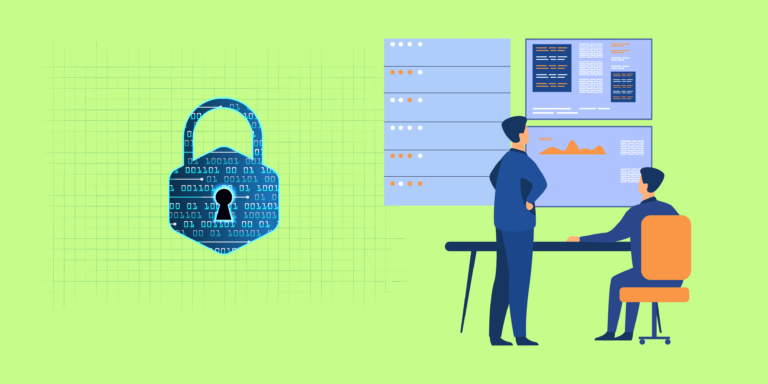Working in the IT field is both promising and interesting. In particular, coding skills can help you build a successful career in technology. According to Indeed, the most in-demand skills in the job market are related to computer technology. Good books about programming provide concise and thorough information about hard skills.
A programmer's work can involve testing and ensuring the quality of websites and programs, creating mobile applications, computer games, or online services used worldwide. Whatever path you choose, you will need to know at least one popular programming language. This applies not only to developers but also to web designers, project managers, QA engineers, and others.
Coding experience is important even for team members who do not perform technical tasks. In any case, obtaining a relevant higher education is not mandatory. For many employers, a specialist's knowledge and practical skills are paramount. Both can be acquired through relevant online courses and must read programming books.
What a Beginner Programmer Needs to Know?
For a novice programmer, there are several key aspects that are important to know and understand to start a career in programming successfully. Let's look at the main ones:
- Programming Basics
The syntax of a programming language, basic commands, and structures of the chosen programming language (e.g., Python, JavaScript, Java, C++).
- Control Flow Structures
It is advisable to know how to use if, else if, and else for decision-making in code.
- Functions and Modularity
A programmer should understand how to declare, call, and pass parameters to functions, and have knowledge of recursion and modularity.
- Object-Oriented Programming (OOP)
This includes the basic concepts of OOP, such as classes, objects, inheritance, polymorphism, encapsulation, and abstraction.
- Working with Data, Debugging, and Testing
Important skills include reading and writing files, and the ability to find and fix errors in code.
The best books for beginners programming provide all the necessary information. However, it's important to remember that reading alone is not enough. The most valuable thing is to apply the knowledge in practice. It's essential to be ready to constantly learn and improve your skills through various courses and marathons and to develop soft skills.

Top 10 Books on Programming Basics
In books and basic online courses, the most important topics are covered, which can be studied independently. These include an overview of the main programming languages, coding rules, working with the console, basics of networking, client-server architecture, features of creating programs with a graphical interface, basics of unit testing, principles of clean code, and more.
The best books to learn code usually cover the basics and fundamental concepts needed to understand and write code. After familiarizing yourself with the theory, it will be easier for you to objectively determine what exactly in programming you would like to know more about and what you would like to link your career with.
- Beginning Python From Novice to Professional by Magnus Lie Hetland
The book starts with the basics of downloading Python to your computer and ends with an explanation of several Python data types, such as lists, dictionaries, tuples, and sets. Topics such as if statements and database integration with SQLite are also covered. The advantage is the presence of practical tasks in the book, which allows you to quickly consolidate the acquired knowledge.
- Python Crash Course by Eric Matthes
The world's most popular guide to the Python programming language, ideal for beginners in programming. It covers not only Python libraries and tools but also the processes of creating 2D games, interactive visualizations, and web applications.
- Eloquent JavaScript by Marijn Haverbeke
About one of the most popular programming languages, JavaScript. The author starts with the basics and gradually introduces the reader to complex topics. This book will be useful not only to beginners. Experienced programmers will also find a lot of useful information. It features simple explanations and interactive examples that are easy to remember.
- Automate the Boring Stuff with Python by Al Sweigart
A basics of programming book in Python. Suitable for developers who spend too much time on tasks. It describes automation functions such as searching for text in a file or multiple files, filling out online forms, downloading online content, encrypting files, etc. Each chapter ends with practical tasks.
- Cracking the Coding Interview. 189 Programming Questions and Solutions by Gayle Laakmann McDowell
The author shares proven strategies for solving algorithm questions, explains large data structures and key algorithms, and prepares for interviews. An interesting part for readers is the description of the developer hiring process at companies like Google and Facebook. The author is a software engineer who has experience both as a candidate and as an interviewer hiring other software engineers.
- Code Complete: A Practical Handbook of Software Construction by Steve McConnell
Considered one of the TOP programming books. It helps beginners master the profession and experienced developers write higher-quality software. The author describes techniques that help foster creativity during design, apply defensive programming techniques, eliminate and prevent errors, choose and use construction practices, and overall improve work results at any stage.
- Code Simplicity: The Fundamentals of Software by Max Kanat-Alexander
It describes the fundamental laws of software design and key principles for maintaining software systems. The book is universal, regardless of software, programming language, or platform. It is most useful for beginners. Without this guide, it may take years to learn how to avoid typical mistakes, but with it, development principles can be learned much faster. It is undoubtedly one of the essential programming books.
- Clean Code: A Handbook of Agile Software Craftsmanship by Robert C. Martin
The first part describes principles, patterns, and practices for writing clean code. The second section covers thematic studies of increasing complexity, including exercises to improve problematic code. The third chapter discusses discoveries made during case studies. The author explains how to distinguish good code from bad and how to turn any code into quality, readable code, and how to implement complete error handling without breaking code logic. Another important part covers unit testing and test-driven development. Although you won't read all computer books, this one is definitely worth your time.
- Introduction to Algorithms by Thomas H. Cormen
This textbook combines comprehensive material with mathematical rigor. It includes information on VEB trees, multithreaded algorithms, and dynamic programming. Each chapter can be studied separately. Algorithms are described in English and pseudocode, so if you are somewhat familiar with programming, you can compare descriptions and draw your conclusions. The first edition was used as a textbook in many higher education institutions. The updated version includes materials on multithreaded algorithms, recurrence, matrices, detailed and modern explanations of dynamic programming, and flow networks. Like other popular programming books, this edition contains many practical tasks.
- Head First Java by Kathy Sierra and Bert Bates
The book stands out with colorful descriptions, puzzles, and interviews. It is not a typical classic guide; instead, the texts are easy to read and remember. It includes a full introduction to object-oriented programming and the Java language.
The above books programmers should read will also be interesting and useful for software engineers, project managers, team leaders, and system analysts. Most old programming books are periodically republished. Updated editions take into account changes in programming languages and their usage practices, so you can rest assured about the relevance of theoretical material if the computer language books are popular and updated.
It is not necessary to read every chapter of a guide. You can choose what is relevant for you at a given moment and return to the theory from time to time. It is much more important to hurry with applying the acquired knowledge. Avoid diving into books without practice. You can read while developing professionally in courses or at your first job.
Old programming books are classics that provide valuable historical context and explain how certain methods and tools were created. Do not overlook them, but always check the relevance of theoretical material and communicate with senior colleagues and mentors who can always help if you are taking an online course or interning at a company.





